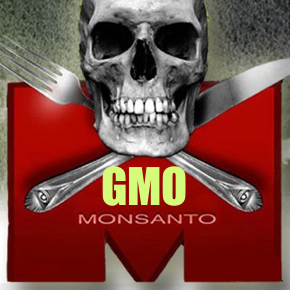Meet the people fighting resource grabs, cultivating traditional crops, and defending their communities from exploitation by multinationals.
When it comes to ‘feeding the world,’ agribusiness keeps selling the same old “solutions” that are actually undermining people’s access to healthful and sustainable food: massive industrialized farming operations, biotech (GMO) crops, pesticide-intensive mono-cropping, and so-called “free trade” agreements. They insist we just need to produce more food (with their seeds and petrochemicals) for the nearly one billion people who go hungry each year—yet landfills overflow with food waste in countries where agribusinesses have gained control of seeds, livestock, markets, and prices.
In spring 2013, Monsanto grabbed headlines when its genetically modified wheat, MON71800—not approved for production or consumption—was found growing in a farmer’s field. Yet in June, Monsanto and Syngenta executives were rewarded with the 2013 World Food Prize, even as evidence keeps pouring in about how these corporations undercut farmers’ ability to survive and feed their communities.
How could corporations whose technologies undermine food sovereignty—destroying plant diversity and displacing millions of farmers— be honored for fighting hunger? And while Monsanto’s lobbyists were pulling out the full court press on members of the House to protect agribusiness payouts in the Food and Farm Bill, SNAP benefits for almost 2 million families in need were slashed. If Monsanto is trying to end hunger, you have to wonder where their priorities were during Food and Farm Bill negotiations. GMOs are the antithesis of food sovereignty—patented technology that robs communities of the ability to feed themselves.

These corporate-controlled seeds are both destructive and unnecessary: evidence continues to confirm the effectiveness, and efficiencies, of agro-ecological sustainable farming. In April, a long-term study on soil health published in Crop Management demonstrated that organic farming not only improves soil quality, but can also boost yields per acre. Many previous studies have shown that small to medium-sized organic farms growing diverse crops are highly productive, sustaining communities and the land.
And the United Nations Conference on Trade and Development’s recent Trade and Environment Review for 2013 entitled Wake up before it is too late: Make agriculture truly sustainable now for food security in a changing climate claims that “The world needs a paradigm shift in agricultural development from a ‘green revolution’ to an ‘ecological intensification’ approach.”
At a September 21 press conference, Dave Matthews, musician, farmer, and Board Member of Farm Aid avowed, “We can’t eat well if we eat the giant corporate food from a profit-driven system.” He was speaking at the 2013 Farm Aid press conference, but could have been addressing a college campus on food sovereignty.
As Farm Aid founder Willie Nelson declared recently, “[Family farmers] restore the Earth, grow the food, and provide the fuel to power our lives safely and sustainably.”
Indeed, while corporations churn out more GMO seeds, pesticides, and glossy PR, a growing worldwide movement of farmers, fishers, workers, and eaters has created concrete solutions to poverty and hunger—on and in the ground.
The 2013 Food Sovereignty Prize honorees from southern India, the Basque Country, Mali, Brazil and Haiti fight resource grabs, cultivate traditional crops, and defend their communities from exploitation by multi-national corporations. Like family farmers in the U.S., they deserve the right to grow the foods they need and want without pressure from foreign agribusinesses and government agencies.
“The Food Sovereignty Prize symbolizes the fight for safe and healthy food for all peoples of the earth,” said Chavannes Jean-Baptiste, member of the Executive Committee for the Group of 4, one of this year’s winners. “It’s a fight that must be waged both locally and globally, and requires deep solidarity among all organizations fighting for food sovereignty.”
Flavio Barbosa, of the South American Dessalines Brigade, added: “Receiving this prize for the partnership between the Group of 4 and the Dessalines Brigade is an incentive for others to participate in long exchanges such as the one we are experiencing in Haiti. And it charges us with even greater responsibility to continue our defense of peasant agriculture and agroecology as a way to produce sustainable, healthy chemical-free foods accessible for all.”
Food sovereignty also means opposing international trade policies that give advantage to transnational agricultural companies while displacing local, subsistence farmers and rural communities around the globe. These “free trade” policies, such as NAFTA, GATT, and now the TPP, threaten food sovereignty and farmers around the world, and pressure millions to migrate to other countries—where many become exploited farm laborers and food industry workers in a foreign land. It also means public and community support for nutrition programs and for SNAP, a great program that is now under siege in the Farm Bill and in the reckless budget negotiations stemming from the federal shutdown.
We don’t need GMOs to feed the world; we need access to healthy soil, fresh water, abundant wild fish, seeds that produce ecologically and nutritionally beneficial crops, and people who know how to grow and harvest foods with the planet and future generations in mind.
For more information, visit: Food Soverignty. On Twitter: #FoodSovPrize and Facebook. What does food sovereignty mean to you? Tell us at: communications@foodfirst.org
Related articles









